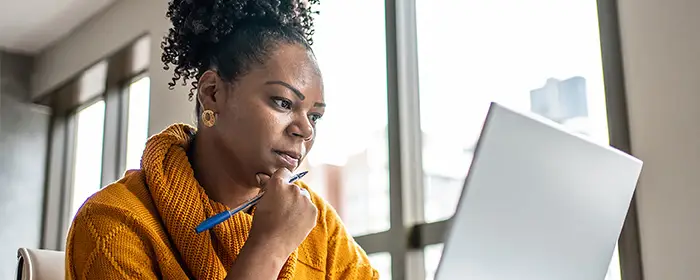Key takeaways:
- It’s important to understand the differences between homeowners insurance, landlord insurance, and renters insurance.
- How you occupy the home determines whether you need homeowners or landlord insurance.
- Landlord insurance can be more expensive than homeowners insurance, but it provides added protection, and there are things you can do to save.
A rental property can be a good way to grow your wealth because it gives you two potential sources of income—the rent you collect from tenants each month and the equity you build over time in the property. Because property ownership offers value but also carries risk, it’s important to protect yourself with the right insurance.
There are several types of property insurance, and policy distinctions can make a big difference in how you are protected. Being a landlord carries extra liability risks, so make sure you get the right coverage if you find yourself owning and renting a property. You may assume that you’re covered by a homeowners policy, but if you have tenants, this may not be the case. You may need landlord insurance, sometimes called rental property insurance.
How are landlord and homeowners insurance different?
Although there are some similarities, homeowners insurance and landlord insurance have several significant differences.
1. Occupancy requirements
The key here is determined by where you live.
Homeowners insurance is designed for people who own their home and live in it. Even if you have a tenant living with you on the property (you’re renting out a room, for example), if you’re paying for homeowners insurance, you must be living on site and the home should be your primary residence.
Landlord insurance is intended for people who own the property but don’t live there and instead, rent it out.
Even if you decide to rent your property for just a weekend or two, you’ll be smart to chat with your insurance agent or broker about adding coverage specifically designed to protect you as a landlord. If you only intend to rent it out occasionally, your insurer may even offer you the ability to add a rider to your existing homeowners policy to cover the rental periods.
2. Personal property is not automatically covered by landlord insurance
Both homeowners and landlord policies cover the main structure as well as separate buildings like garages if they’re damaged from fire, hail, or another covered event. However, while homeowners insurance also covers damage or loss of your belongings and items not attached to your home (such as a computer or bicycle), landlord insurance does not. A landlord policy can be structured to cover things you provide the tenant for their use, such as furniture, appliances, or gardening equipment, but this usually comes with an extra premium.
Renter’s personal property is also not covered by landlord insurance
This is why many landlords require that tenants have their own renters insurance policy.
3. Homeowners insurance covers loss of use, while landlord insurance covers loss of rent
If your home is damaged from a covered event, your homeowners insurance will pay for you to stay in a hotel while it’s being repaired. Similarly, if your rental property is damaged and your tenant cannot live in the home, the right landlord insurance policy may be able to reimburse you for the rental income you’ve lost while repairs are being made. Landlord insurance typically does not cover the cost of a hotel stay for the tenant, though. They would need to turn to their renters insurance for that.
4. Cost of homeowners insurance vs. landlord insurance
Landlord insurance usually costs more than a homeowners policy—as much as 25% more1—because there are added risks associated with renting your property. However, the extra protection that landlord coverage provides still makes it a good value.
There are things you can do to save on landlord insurance.
- Maintain your property and make sure safety features like burglar alarms or smoke detectors are operating properly and inspected regularly.
- Review your deductible with your insurance agent to ensure maximum policy savings.
- Prohibit smoking or limit pets.
- Bundle your landlord coverage with your other policies; bundling could save you money.
How are homeowners and landlord insurance the same?
There are several similarities between these two types of insurance. Speak with your insurance agent or broker to learn more.
1. Both cover the home and other structures on the property
If your home is damaged because of a covered event (fire, hail, wind, lightning, etc.), both homeowners and landlord policies will pay for repairs. Landlord insurance may also cover damage caused by irresponsible tenants.
2. Both cover personal liability and medical payments
Personal liability coverage is one of the most important features of homeowners and landlord insurance policies. Liability coverage protects you if someone is injured on your property, or if you, a family member or even your pet causes damage or injury to someone else.
However, there are a couple differences in the liability protection provided by these two types of property insurance:
- Personal liability coverage under your homeowners policy protects you regardless of where the incident occurs.
- Liability coverage with landlord insurance usually only covers accidents relating to your property.
When do I need homeowners insurance or landlord insurance?
Most mortgage lenders require that you have insurance on your property. Even if you don’t have a mortgage, the right insurance policy will help to protect your investment. If you live in the home, a homeowners policy provides the most affordable coverage. If you rent out the property, a landlords policy will provide valuable protection. Talk with your insurance agent or broker to see what makes sense for you.
Final thoughts
When you rent out your property, you take on extra responsibilities, and the right type of insurance coverage helps protect your investment in the property and your other assets.
Regardless of whether you’re trying to make extra income by renting out your second home, or you’ve become an ‘accidental landlord’ by renting out a house you intend to eventually sell, it’s important to protect your property and yourself. So, if you own a home, make sure you have the right type of insurance coverage based on who’s living there.







